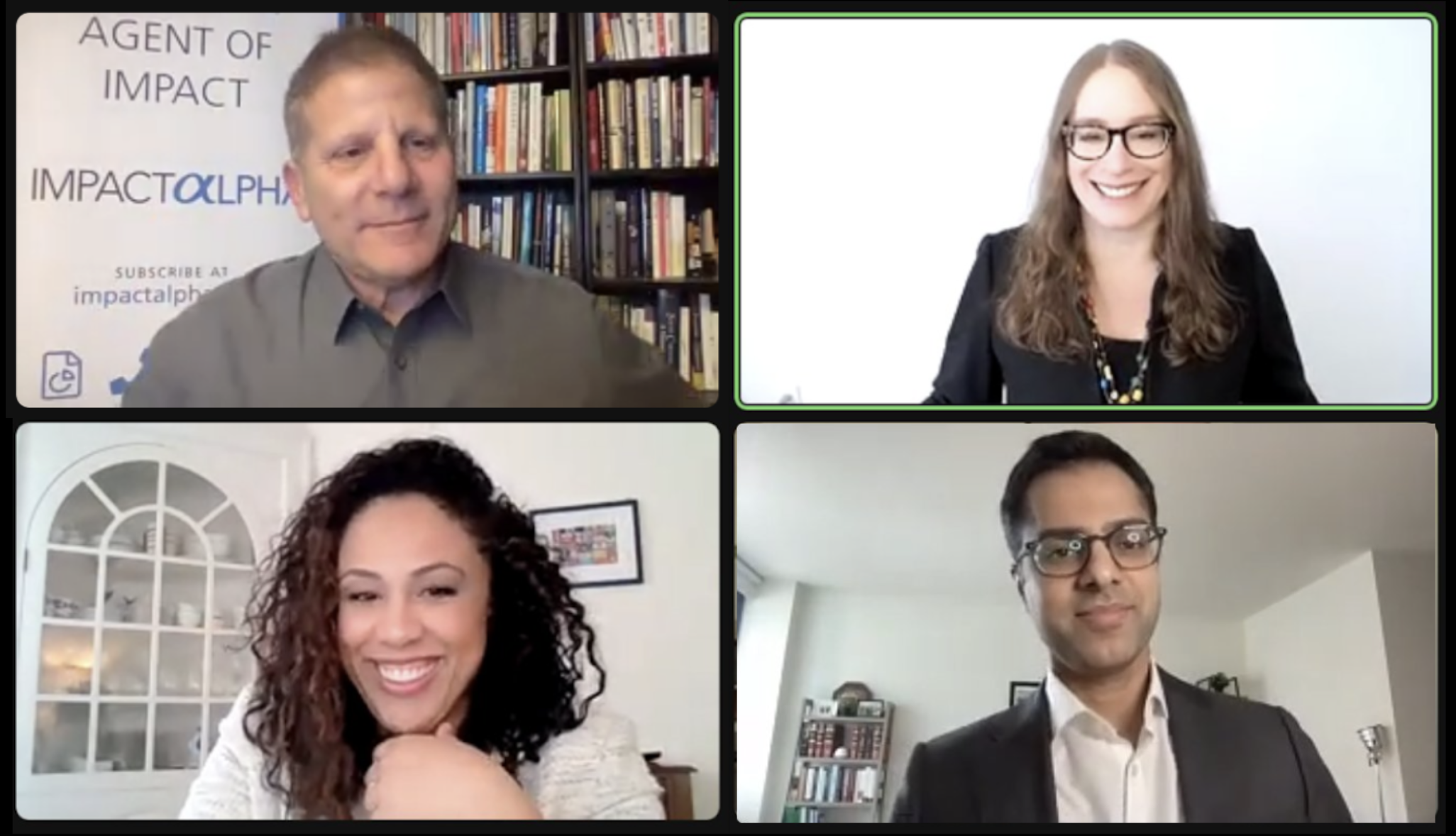ImpactAlpha, Feb. 25 – Bottom-up policies for access to capital in divested communities. Top-down strategies to reshape capitalism to work for all stakeholders.
“We think that the connective tissue between those two represent particularly fertile opportunities for our field,” Fran Seegull of the U.S. Impact Investing Alliance said on ImpactAlpha’s Call No. 38. “This is the time.”
Agents of Impact gathered on The Call to make sense of rules for the next stage of capitalism that are being written into regulations in real-time.
“Between climate and human capital, this is probably one of the most important sets of disclosure rule makings in a generation at the SEC,” said former SEC advisor Satyam Khanna.
Regulatory windows in Europe and the U.S. offer a moment to update rules governing corporate disclosure on climate risks and human capital management, says Seegull. More disclosure and transparency are things impact investors have been fighting for for decades.
Impact investors are also seizing on the strong demand for affordable housing, quality jobs, healthy food and all decarbonized things to drive the supply of needed goods and services. Congress is reconciling supply-side growth policies in the U.S. Innovation and Competition and COMPETES acts.
Such advances would cap a set of early wins under the Biden Administration for policies that mobilize private capital for public good. Already in the bag: Historic investments of nearly $12 billion into community development and minority deposit institutions to improve access to capital for minority entrepreneurs. Sign up to get updates from the Alliance.
Better data
The Securities and Exchange Commission is readying new rules as early as March for corporate ESG and climate disclosure. The European Union and the International Sustainability Standards Board are hammering out their own set of disclosure rules.
Khanna says the SEC is grappling with externalities and how to price them in a way that allows investors to hold management accountable. How far will they go? At stake: whether companies will have to report all of their climate impacts, including so-called “Scope 3” emissions, or only climate risks that directly affect their bottom lines.
“Investors want the information and they want the information because they want to be able to better allocate their capital to take into account what they see as risks in their portfolio,” says Khanna.
Human assets
Institutional asset owners are demanding corporations account for how they invest in their workforces.
“We view human capital, not just as a cost to be managed, but as an important asset for firms,” said Cambria Allen Ratzlaff of the Human Capital Management Coalition, a group of 35 institutional investors representing more than $6.6 trillion in assets.
The group is seeking requirements for companies to disclose high-quality information that is consistent, comparable and able to be benchmarked over time.
“It’s really important that we’re able to understand, evaluate and then make decisions with respect to how we allocate our capital and vote proxies,” says Ratzlaff.
A ruling at the SEC would make such information available not only to institutional investors but small investors as well, she says, allowing everyone to make “the fastest decisions possible that leads to market efficiency that’s better allocated for the entirety of the US economy.”
What’s next? “Comment, comment, comment,” says Ratzlaff. Ratzlaff says investors should let regulators know how more information will improve their ability to efficiently allocate capital. Be “specific and data-driven.” The U.S. Impact Investing Alliance is coordinating investor comments and other engagement opportunities.
Seegull agreed that disclosure and transparency “are necessary but insufficient.”
Still, “we have to balance our ambition and our goals and dreams with the regulatory windows that are open now,” says Seegull. “Practicality and commenting and supporting the SEC, if they’re subject to litigation, is the most important thing in the short and medium term.”
The U.S. Impact Investing Alliance is an ImpactAlpha sponsor.











